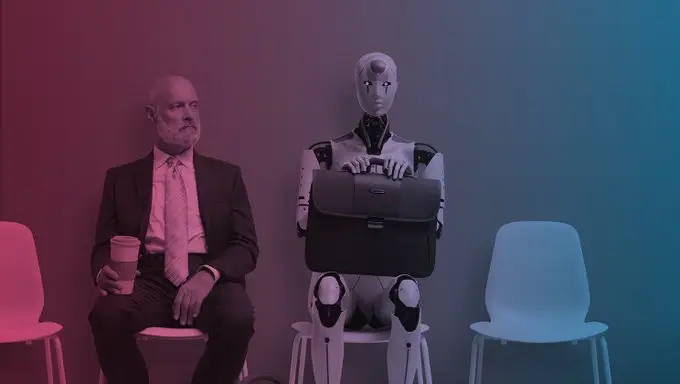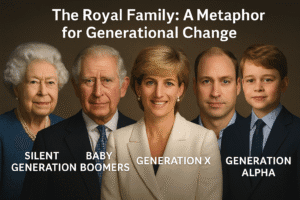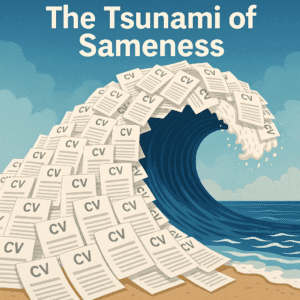If you are ever asked to give a TED talk, there are two things you need to know.
First, it’s got to be brief. Eighteen minutes is the absolute cut-off. Anything beyond that and you’ll be in darkness with the mic switched off. At the time, I didn’t know this, and nonchalantly asked for more time.
Not since Oliver Twist has a request for more gone down so badly. Not even Bill Gates – so I was told – got more than eighteen mins: with the implication being that I very much wasn’t Bill Gates.
The second thing you need to know is that it’s all about the title.
In today’s click-bait world, where audience attention is measured in milliseconds, the title is your hook, line, and (if it’s a dud) sinker. So, what was I going to call mine?
I knew that I wanted to talk about technology and its impact on graduate jobs – specifically, how AI and robotics were replacing many of the traditional ‘professional’ jobs that for decades have dominated the job market.
My working title was packed with big-hitting words such as “macroeconomics” “longitudinal,” and the undergraduate’s favourite: “juxtaposition.” The kind of stuff that goes down well with university committees.
The TEDsters told me to think again.
Fortunately, I’d recently read Mary Shelley’s 19th century tome, “Frankenstein.” There seemed to be something oddly familiar about it, something unusually contemporary: what might happen if AI and robotics were allowed to replace humans with ‘zombie’ like alternatives.
Before you could say “Bela Lugosi” I had my title: “The Attack of the Zombie Jobs”.
Undead occupations: navigating the changing landscape of work
All this happened in 2019. The talk has subsequently been watched many times online and generated a global audience of zombie (job) hunters (zombies never go out of fashion). Perhaps controversially, I listed the ten occupations most likely to be replaced by AI (spoiler alert: careers adviser and accountant were two of them).
At the time, some folk were dubious – and not only careers advisers and accountants. Some claimed that I had overcooked the impact of tech on professional jobs, especially those calling for uniquely human skills such as creativity, communication, and empathy. In other words, jobs like ours. Surely, no computer algorithm could ever do what we do – could it?
Four years on, I’m not so sure.
Enter the Chataclysm!
Technology has always helped humans work smarter, faster and better. From the invention of the wheel to the launch of the Personal Computer, technology has complemented our human skills and talents. Together, we’ve eradicated diseases, decoded DNA and explored the universe.
All that is about to change. Technology wants our jobs.
Within the next decade, Artificial Intelligence and automation will be able to do virtually all basic work tasks, or nearly half of the total workload of the USA and UK. Within the lifetime of our current students, AI will become millions of times smarter than the smartest human, leading to a point where no job – as we currently understand them – is needed.
“I’m Lyssn to you”
To reach 50 million users it took airlines 68 years, cars 62 years, telephones 50 years, and television 22 years. Then came the great 1990s acceleration. Computers took 14 years, the Internet 7 years, YouTube 4 years, and Facebook 3 years. Chat GTP took just two months to reach 100 million users.
Many of my 2019 TED predictions are no longer shocking or controversial; they’re mainstream. Businesses today routinely use AI when hiring staff. Robots profile CVs, short-list candidates and run (and assess) interviews. Big firms like BT are open about their intention to use AI to replace human jobs. Across all sectors, many of the jobs being replaced or remoulded are high skill, high-value “graduate” jobs.
In the past year alone, I have encountered hospitals using robot surgeons and a school that has appointed an avatar to be its new headteacher.
And don’t think that just because you can show empathy to others, putting yourself in their shoes, will be enough to keep you in a job.
Firms are already using AI to craft empathetic correspondence with patients. Lyssn.i.o. is an AI platform designed to train and evaluate therapists. It’s currently testing a specialised GPT model that suggests text responses to give to patients. When a patient discloses anxiety after a difficult week at work, Lyssn’s chatbot offers three options that the therapist can text to the patient. Before long, you won’t be able to tell whether the next letter, email, text or phone call you receive is from a human or an algorithm. Tell me, how does this make you feel?
Preparing for the wrong century
At the same time, the rise of AI and robotics offers countless new and exciting jobs that will transform lives and lead to fulfilling and well-paid careers. And of course, existing jobs are evolving to take advantage of the new technology – and this very much includes careers advisers and accountants.
This is an important and timely message, because today’s younger generations – Millennials, Generation Z and Gen. Alpha – are turning away from many ‘traditional’ careers – often to the bewilderment of parents, teachers, careers advisers, and employers.
As we enter 2024, I’m convinced that the biggest risk facing those of us in higher education is that with the best of intentions, we’re preparing young people for the wrong century, i.e. the twentieth century. But think of this: already on our campuses are students who will live to see the twenty-second century.
Perhaps by then, humans will have got over the shock and learned to make friends with the zombies. For as Mary Shelley wrote, ‘Nothing is so fearful to the human mind as a great and sudden change.’
Paul Redmond’s new book, ‘CHATACLYSM! AI and the new world of work’ will be published in 2024.







